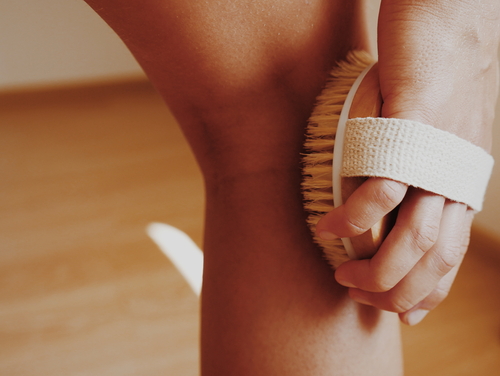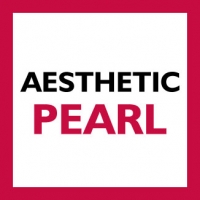
Dry brushing involves the use of a firm, bristled brush is swept across the skin, from toe to head. The reason it is called “dry” brushing it is not done while a person is taking a bath or shower. When you dry brush your skin, your skin and the brush are completely dry. It is common for people to apply a little bit of body oil to the brush before using it.
While dry brushing seems to be a relatively new trend today, it’s actually been around for centuries. It’s common in Ayurvedic medicine but many cultures, including the ancient Greeks, Japanese, and Native Americans have used skin brushing to cleanse and beautify the skin. In ancient Ayurvedic medicine, dry brushing is done every morning, before bathing, to stimulate blood circulation.
Dry brushing is commonly done as part of a body treatment package at a day spa, but you can easily do it at home and get the benefits. All you need is a body brush, which is generally inexpensive and only takes a few mins.
Benefits of Dry Brushing
There aren’t any formal studies done about dry brushing and the effects this treatment can have on the skin or body systems. But there are some noticeable benefits, and they include:
- Exfoliation: Dry brushing exfoliates the skin, similar body scrubs, which also involve physical exfoliation. The bristles of the brush physically sweep away dull, rough, and flaky skin cells. You’ll notice that your skin will feel softer and smoother after each brushing session.
- Circulation Increase: The brisk brushing stimulates circulation. The skin is left looking more radiant, although briefly. The firm bristles of the brush not only exfoliate skin, but the pressure helps to stimulate your circulation and lymphatic drainage. This is meant to help the body eliminate toxins.
- Invigorating and Energizing: Maybe it’s the increased circulation, maybe it’s simply the few extra minutes indulging in a self-care ritual, but most people feel invigorated and energized after a dry brush session. And there’s no denying dry brushing just feels good on the skin (if it doesn’t, you’re probably brushing too hard, but more on that later).
A few things to keep in mind with dry brushing include:
- There is no evidence that dry brushing will or the appearance of cellulite. The effect that people see as cellulite reduction is really just a temporary “plumping up of the skin” from the increased blood circulation in the treated areas.
- It is best to use a natural stiff-bristled brush. There are plenty out there with long handles and different stiffness of bristles. Some bristles are stiffer than others, and you should choose one based on your skin’s sensitivity.
- Start from your feet/ankles and work your way upward. Use long fluid strokes on your limbs and circular motions on your torso and back. In your stomach, chest, and neck areas, many sure to lighten up on the pressure.
- The best time to dry brush right before you take a shower because then you can wash away any dead skin cells and flaky skin that come up from the dry brushing. Make sure to moisturize after to put back moisture.
- Don’t ever brush over skin that has cuts, scrapes, lesions, sores, or burns, including sunburns. Avoid brushing over areas that have an infection, redness or irritation, inflammation, or skin cancer. If you notice that your skin becomes irritated, stop brushing. And don’t dry brush your face.
